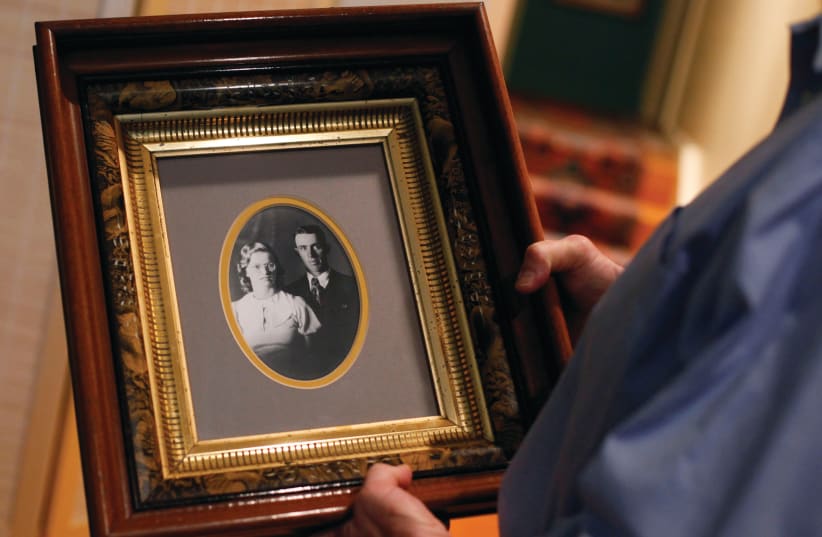As the callers were totally anonymous and the team at the radio handled the questions in such a way without delving too deeply into their particular personalities and circumstances – those who called could not be easily identified. Thus the callers were uninhibited and we received the most astonishing questions broadcast live into people’s car radios and on the buses.
“I want to disinherit my son,” said a woman, obviously elderly, with a distinctive German accent. “Can I do it?”
It was not my place to ask to whom she wanted to leave the funds but she volunteered cheerfully. “I want to leave it to the dogs’ hospital in Beit Dagan.” Again, not my place to ask why dogs were preferable to her son. This was none of my business; as lawyers, we are supposed to give effect to people’s wishes and, unless a criminal intent is involved, that is what we do.
My answer to her was succinct: yes. Under Israeli law, a person is autonomous regarding any assets he has accrued in his lifetime. Israeli law emanates from the British common law. Also in Jewish sources, a high value is put on giving effect to the wishes of the deceased.
This should not be taken for granted. In many countries where continental law applies, such as France, the law operates a restrictive and forced inheritance system, in particular applying to children. The answer to my caller, had she been in France, would have been different, because, irrespective of the conditions of a written will, a certain proportion of the deceased’s estate (called the reserve) must be set aside for the children, or in certain circumstances, the spouse. After that, the remainder may be distributed freely in accordance with the instructions of the will. In some cases the reserve comes to 75% of the estate.
The freedom to instruct what is done with your assets and freedom that we in Israel enjoy under the adage “mitzvah l’kayem divrei hamet” echo the words of Rabbi Judah the Prince that it is incumbent upon us to put into effect the wishes of the deceased. This philosophical concept has been adopted wholeheartedly by the Israeli legal system and thus we enjoy total freedom to do whatever we wish with our assets. (Also taking into consideration that most countries in Europe have a steep Inheritance tax whereas Israel does not, means that it is generally better to live and die in Israel!)
The lady then suggested that she wanted to leave her son “a memento.” When I asked what it was, she responded “I would like to leave him one shiny new shekel.” Though the comment may have sounded funny, the idea of leaving such a memento not only served her wish of obviously insulting her son as much as possible on live radio, but, also from a legal point of view, it was clear that she did not forget him and he was not disinherited by omission.
So, should she leave an explanation either in the will or in a side letter? Should she expound on whatever sin or omission the son was guilty of and what led her to take this fairly unusual action or should she simply write her instruction without any explanation or merely as an expression of her wishes?
In fact, those of us who are involved in drawing up wills or proving these wills at the registrar or in court usually recommend simple instructions. More is often less. The more complex and detailed the instructions are, the more easily the will can be attacked.
Some people give too much explanation, like the grandmother who left everything to “my beloved grandson” but with a surprising condition: “only if he divorces his wife” who apparently worked for an organization that disavowed the State of Israel. But this kind of explanation is risky. Firstly, when the will was attacked in court, it turned out that the organization the wife worked for did not disavow the State of Israel but was a mainstream organization working to reform the law.
This will could be objected to on the basis that to make an inheritance conditional upon somebody divorcing his wife is very likely against public policy and the offending condition could be struck down in court, leaving the inheritance to the grandson outright.
So sometimes a bare-bone will is more watertight, but in other cases, if you exclude your children and do not give them a dime, the will could be attacked on the basis that you were not competent to make a will or that you were persuaded by the beneficiary to change the will. In one case where the deceased left everything to his Filipino caregiver, there was no explanation why the deceased acted in this way and this raised questions about the validity of the will.
When this was challenged in court by the children, the court had no way of understanding the thinking process of the testator until a letter was found explaining that the children had completely neglected the deceased, never visited him and during a period of five years had come to see him only twice. In contrast, the carer treated him with respect and compassion that he did not receive from his children. The court upheld the will.
The legal advice, therefore, depends on the circumstances. Leaving everything to “the dogs’ home in Beit Dagan” and excluding the son could raise eyebrows and the son could challenge the will and argue dementia and so on. Accordingly, some explanation should be in place because of the unconventional decision made by the testator. But in a simple will where assets are simply divided unequally, more is less and the less said the better.
Dr. Haim Katz and Adv. Sam Katz are senior partners in a law firm based in Tel Aviv and Jerusalem. Their new book, The Complete Guide to Wills and Inheritance in Israel was recently published by Israel Legal Publications.
